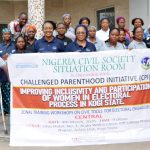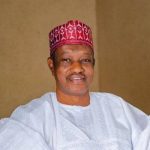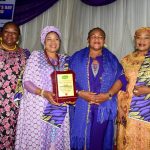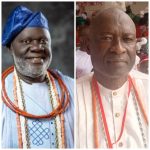The Latent Elements: Unleashing the Power of Unity and Reconciliation in Okun Cluster Groups
Dr. Aiyeku Olufemi Samuel
Global Human Capital & Energy Management
The Okun cluster groups, comprising various communities in Kogi State, Nigeria, have long been plagued by disunity, conflict, and a lack of genuine brotherhood. As the 2027 elections approach, it is imperative that quality and purposeful reconciliation efforts are undertaken to address the deep-seated scars and betrayals that have hindered progress and development in the region.
“Unity is strength… when there is teamwork and collaboration, wonderful things can be achieved.” This quote emphasizes the importance of unity and collective effort in achieving meaningful development.
*Challenges:*
– _Lack of Unity and Trust_: Years of conflict, betrayals, and power struggles have created an atmosphere of mistrust and suspicion among Okun cluster groups.
– _Unaddressed Scars and Betrayals_: Past hurts and betrayals have not been adequately addressed, leading to lingering resentment and anger.
– _Individual and Collective Interests_: The pursuit of individual and collective interests has often taken precedence over the greater good, exacerbating divisions and conflicts.
– _Lack of Effective Leadership_: The absence of visionary and inclusive leadership has hindered efforts to promote unity, reconciliation, and development.
“The best way to find yourself is to lose yourself in the service of others.” This quote highlights the importance of selfless leadership in promoting unity and development.
*Solutions and Recommendations:*
– _Quality and Purposeful Reconciliation_: Establish a platform for genuine reconciliation, where past hurts and betrayals are acknowledged and addressed.
– _Inclusive and Representative Leadership_: Foster leadership that is inclusive, representative, and accountable to all stakeholders.
– _Balancing Individual and Collective Interests_: Encourage dialogue and negotiation to balance individual and collective interests, promoting a sense of shared ownership and responsibility.
– _Empowerment of Latent Elements_: Identify and empower the “latent elements” within the Okun cluster groups, who possess the potential to drive positive change and unity.
– _Civic Education and Awareness_: Promote civic education and awareness programs to foster a culture of tolerance, understanding, and peaceful coexistence.
“Alone we can do so little; together we can do so much.” This quote emphasizes the importance of collective effort in achieving meaningful development.
As the 2027 elections approach, it is crucial that the Okun cluster groups come together to address their differences and work towards a common goal. By empowering the “latent elements” and promoting quality and purposeful reconciliation, the region can unlock its full potential and achieve meaningful development. The time for unity, peace, and genuine brotherhood is now.
The upcoming Okun Summit 2.0 presents a critical opportunity for the Okun cluster groups to address their differences and work towards a common goal. To achieve meaningful development, the summit must tackle the deep-seated scars and betrayals that have hindered progress in the region.
_Key Issues to Address_ include:
– _Lack of Unity and Trust_: Establishing a platform for genuine reconciliation, where past hurts and betrayals are acknowledged and addressed, is crucial.
– _Reconciliation and Forgiveness_: Encouraging parties who have been betrayed in the past to forgive and reconcile with those who have wronged them.
– _Inclusive and Representative Leadership_: Fostering leadership that is inclusive, representative, and accountable to all stakeholders can help promote unity and development.
– _Balancing Individual and Collective Interests_: Encouraging dialogue and negotiation to balance individual and collective interests can promote a sense of shared ownership and responsibility.
– _Empowerment of Latent Elements_: Identifying and empowering the “latent elements” within the Okun cluster groups can drive positive change and unity.
– _Youth Empowerment Initiative and Skills Acquisition_: Providing opportunities for youths to acquire skills and become empowered, reducing the likelihood of drug addiction, criminal vices, and political thuggery.
– _Education_: Encouraging youths to pursue education and promoting a culture of learning.
– _Gender-Based Inclusive Decision-Making_: Ensuring that decision-making processes are inclusive and representative of all genders.
To ensure the success of the Okun Summit 2.0, _Strategic Planning and Implementation_ are essential. A robust plan should include:
– _Short-term goals_: Establishing a reconciliation platform, fostering inclusive leadership, and empowering latent elements within the next 6-12 months.
– _Mid-term goals_: Implementing civic education and awareness programs, promoting dialogue and negotiation, and balancing individual and collective interests within the next 1-2 years.
– _Long-term goals_: Achieving meaningful development, promoting unity, peace, and genuine brotherhood, and unlocking the full potential of the Okun cluster groups within the next 2-5 years.
Effective implementation will require _Collaboration and Partnerships_ among stakeholders, including community leaders, civil society organizations, and government agencies. By working together, the Okun cluster groups can overcome their challenges and achieve a brighter future.












